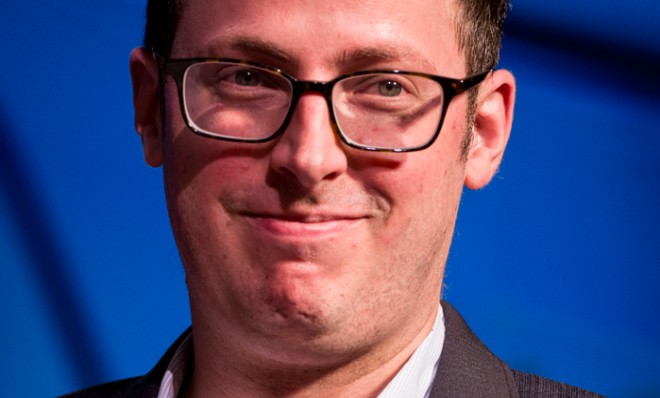Who needs Nate Silver? A study says Twitter can predict elections
The social media site may one day usurp the King of Nerds

A free daily email with the biggest news stories of the day – and the best features from TheWeek.com
You are now subscribed
Your newsletter sign-up was successful
Last year, statistician (and recent ESPN hire) Nate Silver correctly picked the winner of every state in the 2012 presidential election, earning the enmity of Politico writers and conservatives alike.
But those looking elsewhere for political prognostications can take heart: It appears that Twitter could hold the key to predicting election winners. A new study by researchers at Indiana University found that a candidate was more likely to win if the candidate was mentioned more often on Twitter than his or her opponent.
It was irrelevant if the tweets were negative or positive. It didn't matter if a candidate was the subject of a flood of tweets or only a trickle.
The Week
Escape your echo chamber. Get the facts behind the news, plus analysis from multiple perspectives.

Sign up for The Week's Free Newsletters
From our morning news briefing to a weekly Good News Newsletter, get the best of The Week delivered directly to your inbox.
From our morning news briefing to a weekly Good News Newsletter, get the best of The Week delivered directly to your inbox.
The only factor that was important was a candidate's "tweet share" — the percentage of tweets in a congressional district that are about each candidate.
Fabio Rojas, one of the authors of the study, explained why in The Washington Post:
We believe that Twitter and other social media reflect the underlying trend in a political race that goes beyond a district’s fundamental geographic and demographic composition. If people must talk about you, even in negative ways, it is a signal that a candidate is on the verge of victory. The attention given to winners creates a situation in which all publicity is good publicity. [The Washington Post]
How effective is Twitter at picking winners? The researchers' data correctly predicted 404 out of 406 House races.
Rojas insisted that his Twitter model for predicting elections isn't just a novelty.
A free daily email with the biggest news stories of the day – and the best features from TheWeek.com
He noted that it could be a boon for poorly funded candidates who can't afford to conduct extensive polling, claiming that an analysis of the data can be done by "anyone with programming skills" who "can write a program that will harvest tweets, sort them for content and analyze the results."
This hardly means the end of traditional polling. As Alex Roarty of the National Journal argued, "Professional polling isn't likely to disappear from politics any time soon," mainly because "it's used for more than just the horse race — campaigns test a variety of things with polls, including their message."
For the rest of us, however, Twitter could provide insight into races that the national media doesn't find flashy enough to cover, or in remote districts that never get polled. Rojas theorized that one day an app could automatically sort tweets by congressional district and give you real-time election predictions on your phone.
"Once you start up software for collecting tweets, it's very cheap," Rojas told the National Journal. "It took one of my Ph.D. students a couple of weeks to set it up."
Keith Wagstaff is a staff writer at TheWeek.com covering politics and current events. He has previously written for such publications as TIME, Details, VICE, and the Village Voice.
-
 Why are election experts taking Trump’s midterm threats seriously?
Why are election experts taking Trump’s midterm threats seriously?IN THE SPOTLIGHT As the president muses about polling place deployments and a centralized electoral system aimed at one-party control, lawmakers are taking this administration at its word
-
 ‘Restaurateurs have become millionaires’
‘Restaurateurs have become millionaires’Instant Opinion Opinion, comment and editorials of the day
-
 Earth is rapidly approaching a ‘hothouse’ trajectory of warming
Earth is rapidly approaching a ‘hothouse’ trajectory of warmingThe explainer It may become impossible to fix
-
 The billionaires’ wealth tax: a catastrophe for California?
The billionaires’ wealth tax: a catastrophe for California?Talking Point Peter Thiel and Larry Page preparing to change state residency
-
 Bari Weiss’ ‘60 Minutes’ scandal is about more than one report
Bari Weiss’ ‘60 Minutes’ scandal is about more than one reportIN THE SPOTLIGHT By blocking an approved segment on a controversial prison holding US deportees in El Salvador, the editor-in-chief of CBS News has become the main story
-
 Has Zohran Mamdani shown the Democrats how to win again?
Has Zohran Mamdani shown the Democrats how to win again?Today’s Big Question New York City mayoral election touted as victory for left-wing populists but moderate centrist wins elsewhere present more complex path for Democratic Party
-
 Millions turn out for anti-Trump ‘No Kings’ rallies
Millions turn out for anti-Trump ‘No Kings’ ralliesSpeed Read An estimated 7 million people participated, 2 million more than at the first ‘No Kings’ protest in June
-
 Ghislaine Maxwell: angling for a Trump pardon
Ghislaine Maxwell: angling for a Trump pardonTalking Point Convicted sex trafficker's testimony could shed new light on president's links to Jeffrey Epstein
-
 The last words and final moments of 40 presidents
The last words and final moments of 40 presidentsThe Explainer Some are eloquent quotes worthy of the holders of the highest office in the nation, and others... aren't
-
 The JFK files: the truth at last?
The JFK files: the truth at last?In The Spotlight More than 64,000 previously classified documents relating the 1963 assassination of John F. Kennedy have been released by the Trump administration
-
 'Seriously, not literally': how should the world take Donald Trump?
'Seriously, not literally': how should the world take Donald Trump?Today's big question White House rhetoric and reality look likely to become increasingly blurred